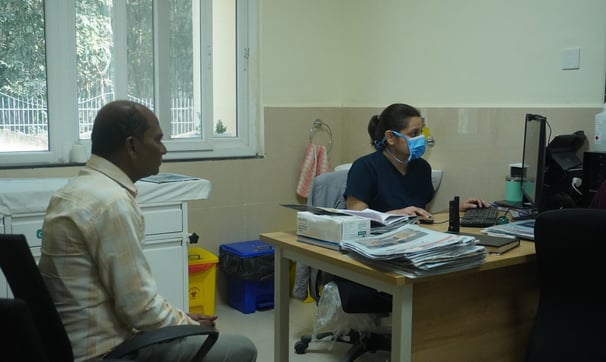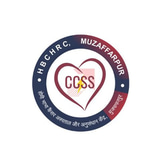FAQs
BEFORE ADMISSION


Navigating cancer treatment and recovery can be overwhelming, especially for caregivers and patients who are new to the journey.
Whether you’re preparing for surgery, exploring dietary recommendations, or seeking support during rehabilitation, our FAQs offer practical advice and insights to help you and your loved one manage this challenging time with confidence
1. Pre-Surgery Preparation
What preparations do I need to make before the surgery?
Your healthcare team will provide specific instructions, but generally, you may need to avoid eating or drinking for about 8 hours before the surgery. You might also need to stop certain medications.
Are there any dietary restrictions or special instructions before the surgery?
You will be advised to follow a clear liquid diet before the surgery. Avoiding tobacco and alcohol is typically recommended.
How should I prepare for the recovery period at home?
Ensure that your home is well-prepared for your return by having soft foods, necessary medications, and a comfortable recovery space.
2. Surgery Details
What type of surgery will I be undergoing for oral cancer?
The specific type of surgery depends on the location and stage of the cancer. It will involve tumor removal, lymph node dissection from the neck, and/or reconstructive procedures.
Can you explain the procedure in detail?
Your surgeon will explain the surgical procedure, potential risks, and benefits. Informed consent will be taken after you have been explained the entire procedure.
How long will the surgery take?
The duration of the surgery varies based on the complexity. It can range from a few hours to an entire day.
Will I be under general anesthesia?
Yes, oral cancer surgeries typically involve general anesthesia to ensure the patient is completely unconscious and pain-free during the procedure.
3. Recovery and Post-Surgery Care
What can I expect during the immediate recovery period after surgery?
Pain and swelling are common initially. Your healthcare team will manage your pain and monitor for any signs of complications.
How long is the typical hospital stay for this type of surgery?
The length of hospital stay varies but may range between 5-7 dyas, depending on the surgery and individual recovery progress.
Are there any potential complications or side effects I should be aware of?
Complications can include infection, bleeding, and difficulty swallowing. Your medical team will closely monitor for these issues.
What pain management options will be available to me?
Pain management may include medications and other techniques. Discuss the options with your healthcare team to find the most suitable approach for you.
4. Diet and Nutrition
What dietary changes should I make after the surgery?
Initially, a soft or liquid diet may be recommended orally or via nasogastric feeding tube. As you heal, you can gradually reintroduce solid foods.
Are there any specific foods I should avoid?
Spicy, hot, or hard foods may need to be avoided initially. Your healthcare team will provide guidance based on your specific case.
Will I need any nutritional supplements during the recovery period?
Your medical team may recommend supplements if there are concerns about meeting nutritional needs through your diet alone.
5. Speech and Swallowing
How might the surgery affect my ability to speak and swallow?
Depending on the extent and location of the surgery, there may be temporary or permanent changes to speech and swallowing. Speech therapy and swallowing exercises will be recommended.
Are there exercises or therapies to help with speech and swallowing after surgery?
Yes, speech therapists can provide exercises to improve articulation and swallowing function.
Will I need any assistive devices for communication?
Depending on the impact on speech, your healthcare team may recommend communication aids, such as speech-generating devices.
6. Follow-Up Care and Monitoring
What will be the schedule for follow-up appointments after the surgery?
Follow-up appointments are typically scheduled every 2-4 days immedoiately after surgery to monitor recovery, address any concerns, and perform necessary tests.
How will my progress be monitored?
Your medical team will conduct physical examinations, imaging studies, and may order blood tests to monitor your progress and check for any signs of recurrence.
Are there signs or symptoms I should watch for and report to the medical team?
Any unusual symptoms, such as persistent pain, swelling, difficulty swallowing, or changes in speech, should be reported promptly to your healthcare team.
7. Support and Rehabilitation
Are there support groups or counseling services available for patients undergoing oral cancer surgery?
Many cancer centers offer support groups and counselling services to help patients cope with the emotional and psychological aspects of cancer treatment.
Will I need physical therapy or rehabilitation after the surgery?
Depending on the extent of the surgery, physical therapy may be recommended to aid in recovery and improve mobility.
What resources are available to help with the emotional and psychological aspects of recovery?
Psychosocial support services, including counseling and support groups, can be valuable resources. Your healthcare team can provide information on available services.
8. Long-Term Prognosis
What is the expected long-term prognosis after surgery?
The prognosis varies based on the stage of cancer, the success of the surgery, and other factors. Your oncologist can provide information specific to your case.
Will there be a need for additional treatments such as radiation or chemotherapy?
Depending on the stage and characteristics of the cancer, additional treatments like radiation or chemotherapy may be recommended. This will be discussed with your oncology team after surgery.
How often will I need follow-up screenings for recurrence?
Follow-up screenings are typically scheduled at regular intervals (2-6 months), and the frequency may decrease over time if there are no signs of recurrence.
9. Financial and Insurance Questions
How will the surgery and related treatments be covered by my insurance?
Contact your insurance provider to understand coverage details, including copayments, deductibles, and any out-of-pocket expenses.
Are there any financial assistance programs available for cancer patients?
Yes. Click here to find a full list of funds available for financial assistance.
What is the estimated cost of the surgery, and are there any potential additional costs I should be aware of?
The cost of surgery can vary widely. On an average, the approximate cost of surgery will be Rs 25,000 - Rs 35,000. Multiple options to avail financial assistance can be explored on meeting with the Medical Social Worker (102).


